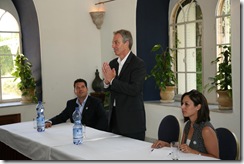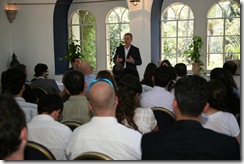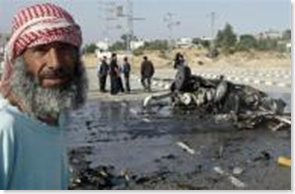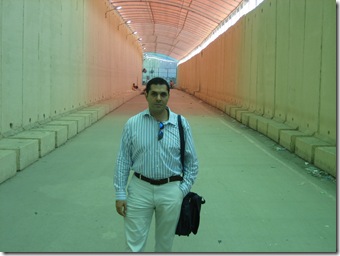Obama’s interview with the Jerusalem Post
Published under Iran, Israel, Middle East, Mideast Negotiations, OneVoice Movement, Religion, Syria, United States Jul 26, 2008Jerusalem Post Editor David Horovitz’s interview with Barack Obama is one of the most to-the-point expositions of Senator Barack Obama’s stances on Mideast issues. Horovitz asked strong and straightforward questions, and Obama replied with earnest answers. Anyone who truly cares about understanding the "real" Obama on these issues should read this interview.
One example:
Horovitz: You’ve said on this trip that you want to work for an Israeli-Palestinian accommodation from the minute you’re sworn in, so let me ask you about the thesis that there is no prospect of Palestinian moderation prevailing and enabling a peace process to really move forward until Iran’s nuclear drive has been thwarted – that so long as the Teheran-backed extremists of Hamas and so on feel that they are in the ascendant, the moderates can’t prevail and that the whole region is now in this kind of holding mode.
Obama: I think there is no doubt that there is a connection between Iran’s strengthening over the last couple of years, partly because some strategic errors have been made on the part of the West. And [the same goes for] the increasing boldness of Hizbullah and Hamas. But I don’t think that’s the only factor and criterion in the lack of progress.
Hamas’s victory in the [Palestinian Authority] election can partly be traced to a sense of frustration among the Palestinian people over how Fatah, over a relatively lengthy period of time, had failed to deliver basic services. I get a strong impression that [PA President Mahmoud] Abbas and [Prime Minister Salaam] Fayad are doing everything they can to address some of those systemic failures by the Palestinian Authority. The failures of Hamas in Gaza to deliver an improved quality of life for their people give pause to the Palestinians to think that pursuing that approach automatically assures greater benefits.
You know, look, I arrive at this with no illusions as to the difficulty in terms of what is required. But I think it’s important for us to keep working at it, frankly, because Israel’s security and peace in the region depend on it.





















